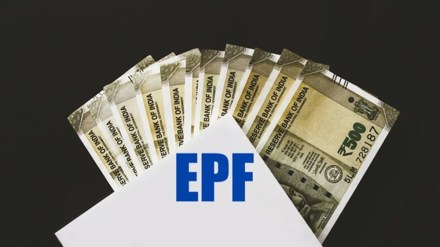In a landmark judgement, the Kerala High Court has said that the Employees’ Provident Fund Organisation (EPFO) cannot deny higher pension to employees solely on the ground that the contributions were made in bulk and not on a monthly basis.
Ruling in favour of four retired employees of a co-operative society named Thiruvananthapuram Regional Co-operative Milk Producers Union, Justice Murali Purushothaman said that the EPFO must pay higher pension to people who contributed on their full salary during service, even if the payments were made in bulk or delayed. These four retired employees had filed writ petitions before the High Court.
Hearing the joint appeal of the employees, the Single Bench of Justice Murali Purushothaman ruled that the EPFO has received contributions from both employees and employer “under Para 26(6) of the EPF Scheme, 1952, for the period 2004– 2005 to 2007–2008. Paragraph 26 (6) deals with instances where employees and employers opt to contribute to the Employees’ Provident Fund on wages exceeding the statutory limit. The petitioners and the 4th respondent having complied with the requirements under the said paragraph, and the Employees Provident Fund Organisation accepted the contributions, the 2nd respondent cannot deny the petitioners the benefit of higher pension.”
Also read: EPFO: Guaranteed minimum pension of Rs 7,500 under EPS soon?
These employees had made contributions under the Employees Pension Scheme (EPS) based on their full salary for most of their career and their employer made an equal contribution. However, the retirement fund body denied these employees higher pension, stating that during some months between 2004 and 2008, the contributions were made in lump sum and not on a monthly basis.
Pooja Ramchandani, Partner, Shardul Amarchand Mangaldas & Co., said, “In the latest judgment of the Kerala High Court (Gopinathan Pillai. M. & Ors. v. Union of India & Ors., 2025 KER 15578) the Court held that where both employees and employer have contributed on actual salary and complied with all requirements under Para 26(6) of the EPF Scheme, 1952 and the EPFO accepted such contribution, EPFO cannot deny the benefit of higher pension.”
Judgement to help EPFO members pursuing joint applications for higher pension
She further said that this judgment will help those EPFO members who are pursuing joint applications made for higher pension contribution to receive higher pension benefits.
Echoing similar views, Tarun Garg, Director, Deloitte India, said that the judgment is a landmark ruling as it directly addresses a common ground on which EPFO has previously denied higher pension claims of the employees – namely that the pension contributions were either delayed or made in lump sum.
The judgment would certainly prove to be a win-win for employees as it sets a strong precedent that could help thousands of pensioners facing similar issue and influence other High Courts to adopt a more employee – centric approach and interpretation in such cases, Garg noted.
High Court reinforces principle that procedural ambiguities should not override the rights
“Further, it can be said that the Kerala High Court has reinforced the principle that procedural ambiguities should not override the rights, especially when both employer and employee have fulfilled their obligations in good faith. This recent Kerala HC ruling does strengthen employees’ rights under Para 26(6) of the EPF Scheme, which allows employees to contribute based on their actual salary – beyond the statutory wage ceiling if both the employer and employee agree,” he added.
“Further, it may be noted that post the ruling, the EPFO may have to adopt a more consistent and employee- friendly approach regardless of how and when the contributions were made – to reduce rejections and ensure that the administrative inefficiencies/ time lags should not create hindrance while extending benefits to its members,” he further said.
